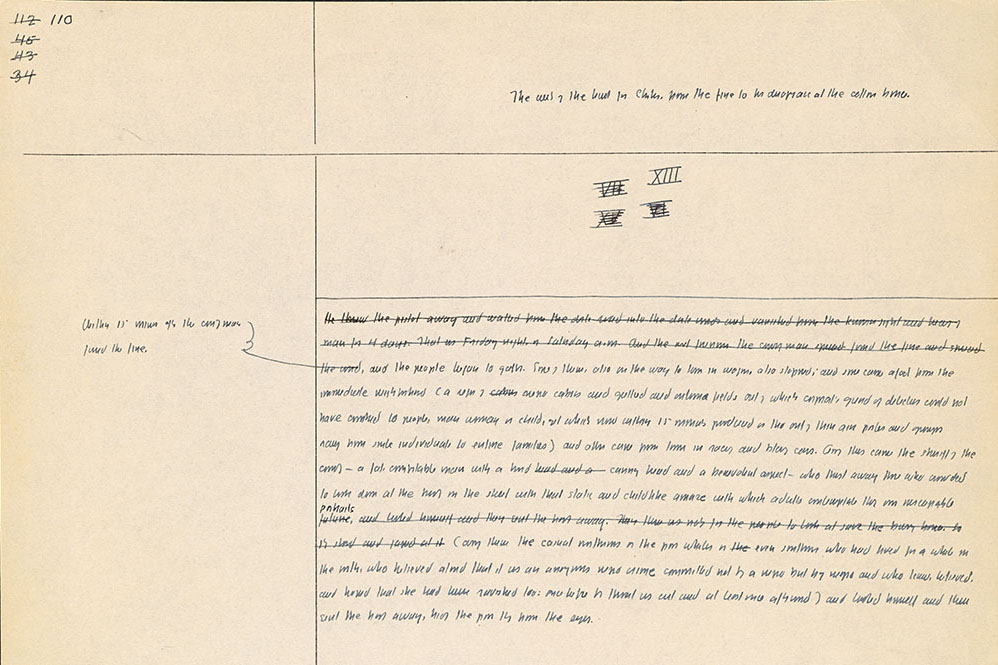TRANSCRIPTION
The [week?] of the hunt for Christmas, from the fire to his [illegible] at the cotton house.
<VII> <VI> <XV> XIII
<He threw the pistol away and walked from the dark road into the dark woods and vanished from the known sight and [hearing?] of
man for 4 days. That was Friday night, or Saturday a.m. And the next the countryman <<spread>> found the fire and spread
the [word?,]>
[margin: Within 15 minutes after the countryman found the fire,]
and the people began to gather. Some of them, also on the way to town in wagons, also stopped, and some came afoot from the
immediate neighborhood (a region of <cabins> negro cabins and gullied and [outworn?] fields out of which corporal's guard of detectives could not
have combed 10 people, man woman or child, yet which now within 15 minutes produced as tho out of thin air parties and groups
ranging from single individuals to entire families) and others came from town in racing and blatting cars. Among them came the sheriff of the
county – a fat, comfortable man with a hard <head and a> canny head and a benevolent aspect – who thrust away those who crowded
to look down at the body on the sheet with that static and childlike amaze with which adults contemplate their own inescapable
portraits <future, and looked himself and then sent the body away. Then there was nothing for the people to look at save the burning house. So
stood and gaped at it> (among them the casual northerners or the poor whites or <the> even southerners who had lived for a while in
the north, who believed aloud that it was an anonymous negro crime committed not by a negro but by negro and who knew, believed,
and hoped that she had been ravished too: once before her throat was cut and at least once afterward) and looked himself and then
sent the body away, hiding the poor thing from the eyes.
|


